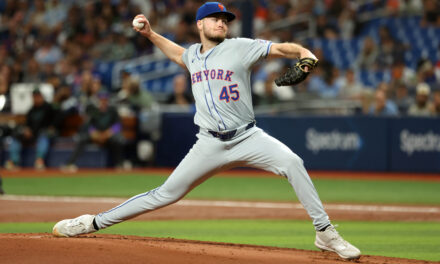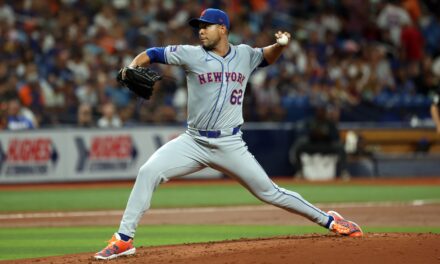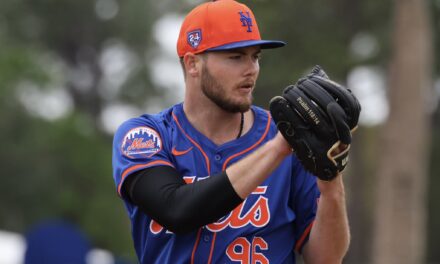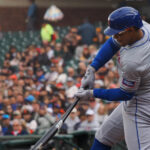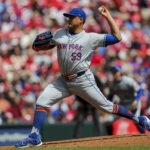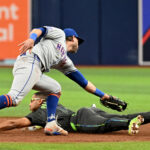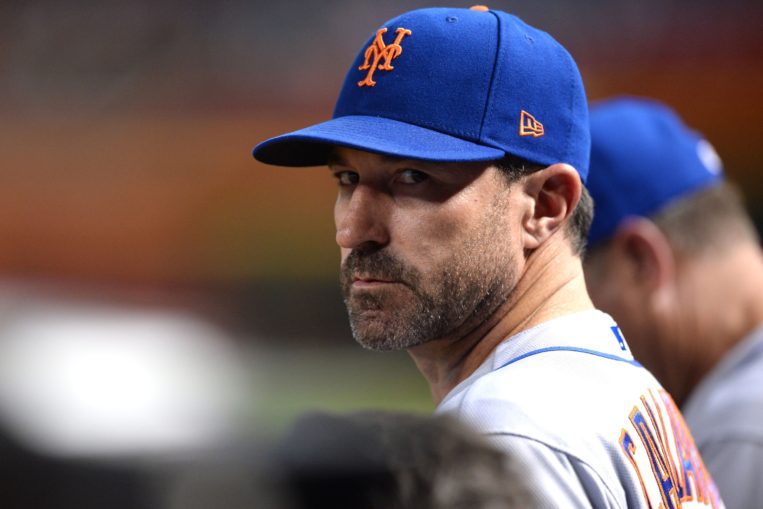
We all knew that importing a pitching coach from a small city in a different league with no managerial experience to a high-profile position in the world’s biggest and most sports-hungry city was potentially fraught with peril.
We knew there would be something of a learning curve, but most of us believed the fresh outlook, energy and contemporary perspective offered by Mickey Callaway would compensate for whatever rookie mistakes he would make.
The optimists among us expected the best…while preparing for the worst. But almost nobody envisioned that the worst could be this bad.
So just how much is the Mets’ rookie skipper to blame for the free fall that has now become the single narrative of this progressively unwatchable 2018 edition of the team?
Hindsight is, as always, 20-20. So let’s take a step back and remember all the kudos the organization received for hiring the rookie manager, and the praise heaped on Callaway for the new vibe and culture of accountability he attempted to engender in the spring, when all things seemed possible. And recall how we all started clearing our October calendars after those scintillating first dozen games.
Many thought this team was good for no more than 75 wins, but many others postulated that 95 wins was possible – with the seemingly ever-present caveat: if we can avoid another plague of injuries.
Well, guess what? There have been injuries – Noah Syndergaard for a month now, Anthony Swarzak for two months, Travis d’Arnaud and Juan Lagares for the season and, of course, Yoenis Cespedes for who knows how long. But especially considering that the rest of the starting rotation has been healthy and mostly productive, those ailments by themselves can hardly account for the utter collapse of a team that now acts and plays as if they fully expect to lose.
Good teams find a way to win, somehow. Bad teams find a way to lose, even when their ace is on the mound putting up zeros or the offense is throwing up crooked numbers. Good teams perform when the game is on the line. Bad teams seem to produce a new culprit for defeat every night – one day they pitch and don’t hit, the next day they hit but don’t pitch, or they build leads only to see the bullpen blow everything up.
The 2018 Mets are a really bad team. But with two ace or near-ace starting pitchers, a reasonably deep bullpen and a legitimately power-laden lineup, how can the whole of this team be so much less than the sum of the parts?
This is not the first time that a promising Mets team has floundered badly. Go back a full 25 years to the 1993 team which lost 103 games – despite being stocked with the likes of Bobby Bonilla, Eddie Murray, Vince Coleman, Jeff Kent, Todd Hundley, Dwight Gooden, Sid Fernandez and Bret Saberhagen. The flip side of the coin – a team where the whole was so much more than the sum of the parts – would be the overachieving 2000 team, which won the pennant with a starting outfield that often included Benny Agbayani, Jay Payton and Timo Perez.
Like Jeff Torborg, the skipper of that woebegone team a quarter of a century ago until he was fired 38 games into the season, Mickey Callaway or any manager, should rightly be in the spotlight when his team so dramatically under performs.
First and foremost, the team must believe its manager has the tools to keep the ship afloat, to keep his head when all about him are losing theirs. But while Callaway has remained admirably calm when he could be melting down night after night, does anyone get the sense that the players believe he has any answers – strategically, temperamentally or psychologically?
How many players on this team have volunteered praise for their manager? Right – almost none, at least not since that magical start. At his hiring,
Callaway spoke of loving his players more than they’ve ever been loved. It seemed a bit creepy at the time, but now feels like just empty rhetoric, as the love has obviously gone unrequited on the field of play.
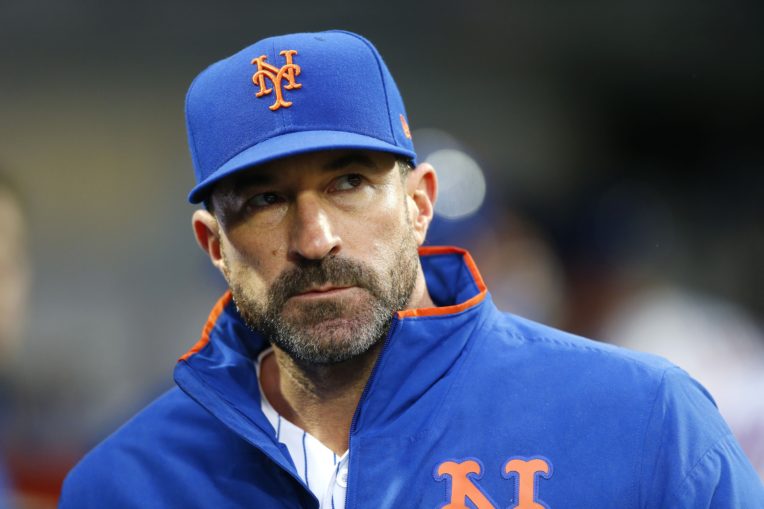
Callaway has made strategic mistakes to be sure. But the fullness of his ineptitude since the 11-1 start can best be understood by his overriding inability to, at a minimum, stanch the bleeding and serve as a safety net for a team falling deeper into the abyss with each passing day.
And now, this rookie manager will be expected to essentially change jobs in midstream. The guy who was hired to compete will now be asked to reboot, rebuild or retool, however radical the inevitable tear-down might be. That’s a very different job description.
It begs the key question at this juncture: If Mr. Alderson knew this year would represent the start of a retool/rebuild instead of a hopeful return to the glory days of 2015-16, would he have hired Mickey Callaway? Alternately, if he knew the success of this team would be dependent on a proven veteran at the helm, might he have gone for a Joe Girardi or a Dusty Baker? Would it have made a difference with this group of players?
The fact that the management of this financially challenged franchise invested more money than any team in the majors (except one) for veteran free agents over the winter is a clear indication they expected to compete for the postseason. Sure, the team is old, slow and non-athletic – we knew that entering the season, but there have been veteran teams which pitched and bashed their way to success over the years.
But now that the barn door is all but mathematically closed on the playoffs with the season less than half over, can a case be made that Callaway is the right man for a very different job that the one for which he was hired? After all, he has already failed in the job for which he was originally hired.
How much more of this embarrassment will the rapidly shrinking numbers at morgue-like Citi Field and the rest of the Mets fan base be willing to tolerate before the outcry becomes so great that there will be no other choice than to terminate the Callaway experiment and move on?
Does this mean the free fall is Callaway’s fault? Not entirely to be sure, because the players are the ones who have failed to perform. And simply by virtue of the time remaining in this most unfortunate season, it’s possible Mickey could still somehow recover and at least stabilize the ship, if not right it. Though the sands in his hour glass seem to be quickly passing, he will still be given some more time to function in disaster, build stature and respect in the clubhouse, and grow into his position.
But it is equally true that this rookie manager has done almost nothing visible to the naked eye to instill confidence in the players, the front office or the fans. He has unfortunately provided little beyond blind hope to justify his continued employment.


